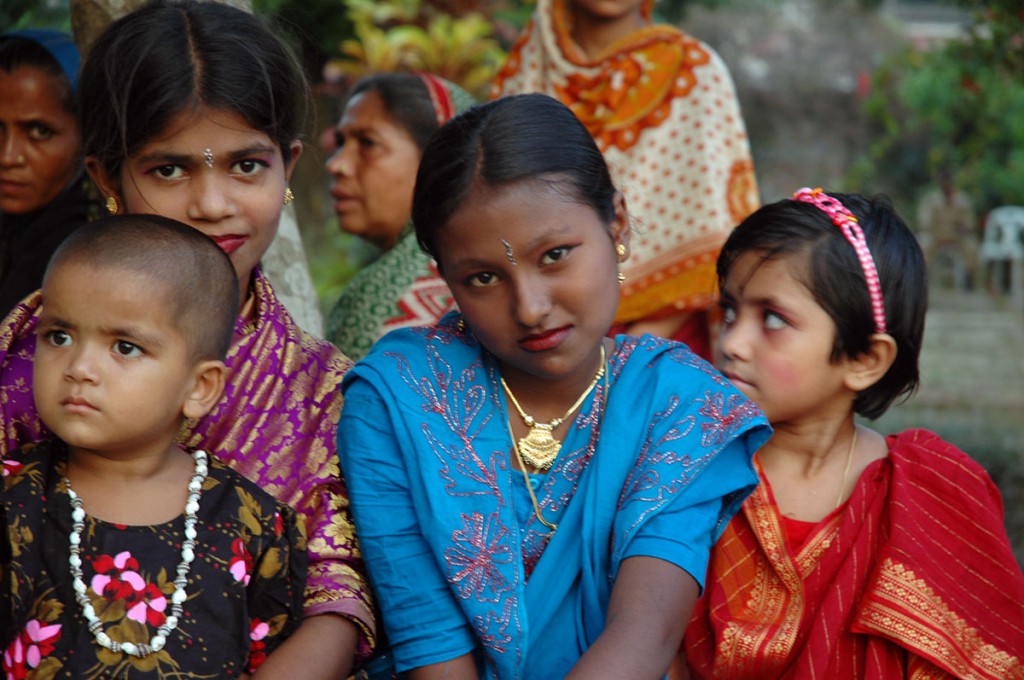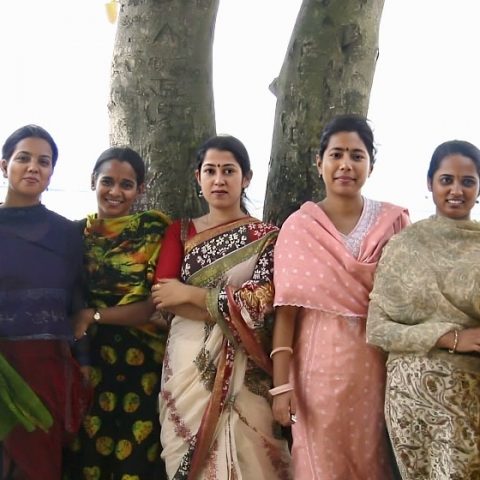Child marriage is defined as the marriage of girls under the age of 18, usually to older men. The persistence of child marriage is a clear sign of the existence of patriarchal cultural attitudes about gender roles. Early child marriage consigns women to domestic roles at an age where they are unable to make mature, responsible decisions about their life goals. It prevents girls from pursuing opportunities in work and education, and deprives them of meaningful agency at a critical period in their lives.

Photo: Sam Sherratt. CC BY-SA 2.0
Child marriage remains a pervasive and serious problem in Bangladesh. According to Human Rights Watch, 29% of girls in Bangladesh will be married before the age of 15. The majority of girls in Bangladesh (65%) will be married before the age of 18. Even though Bangladesh has made inspiring progress in many areas of gender equity over the past two decades, the persistence of child marriage reveals that patriarchal attitudes continue to maintain a strong hold on the local culture.
Multiple studies have demonstrated a constellation of ways in which child marriage negatively affects young brides. Becoming pregnant at a young age greatly increases the risk of complications and death from childbirth. Girls between 15 and 19 are twice as likely to die in childbirth compared to older women. Mothers under the age of 15 have a substantially higher risk for delivering preterm or low-birthweight infants. In Africa, child marriage also results in an elevated risk for STD infection – in Kenya married girls are 50% more likely to become infected with HIV than unmarried girls.
Like child marriage, a high frequency of intimate partner violence (IPV) indicates the persistence of patriarchal cultural attitudes. However, few studies have looked at possible connections between child marriage and IPV.
A recent study from icddr,b examined connections between IPV and child marriage in 3,355 Bangladeshi women spread across 77 villages. The study attempted to determine if early child marriage increased the risk for IPV, i.e. it investigated the hypothesis that women who marry above the age of 18 are protected from IPV.
The study also investigated the role played by local community attitudes around child marriage in the incidence of IPV by measuring the overall incidence of early child marriage among older men in the community. As so many geographically distinct villages were assayed, this allowed the researchers to account for local differences in community attitudes. There are some villages where early child marriage is much more common than others, and these differences are plausibly indicative of differences in cultural attitudes around patriarchy and gender roles. By treating each village as a distinct culture, the study avoids the trap of making monolithic conclusions about “Bangladeshi culture”, a common mistake in these kinds of studies.
The study finds clear connections between child marriage and IPV. 44.5% of the women studied reported some form of physical IPV and 78.9% had been married before 18. Women who married later tended to experience less physical IPV. This result shows that, on an individual level, early child marriage tends to leave women more exposed to physical IPV from their husbands.
On a community level, the study finds that women in villages where early child marriage is prevalent are more likely to suffer physical IPV. Furthermore, in such communities the protective effect of later marriage is diminished. These results show that these phenomena cannot simply be studied on an individual level, and that a nuanced analysis of local contexts is needed to fully understand child marriage and IPV.
Child marriage severely affects the ability of women to achieve meaningful self-determination. Although previous research has focused on the negative health effects of early child marriage and pregnancy, much less work has been done on the social and psychological consequences of child marriage. This study demonstrates that child marriage and IPV are inextricably linked in Bangladesh, highlighting the urgent need to end this outdated cultural practice and stand up for the rights of women across the country.

